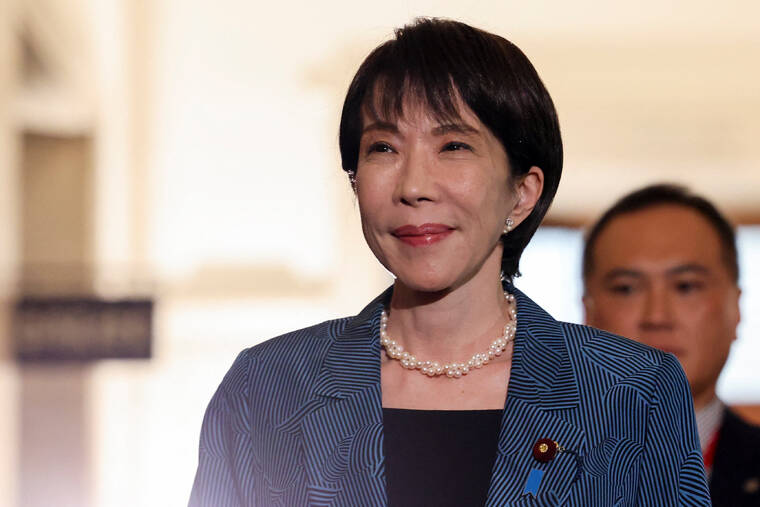Japan’s political landscape underwent a significant transformation on October 21, 2023, when Sanae Takaichi received 237 votes in the lower house election for prime minister, surpassing the required majority by four votes. This landmark victory makes Takaichi the first female prime minister in Japan’s history, marking a pivotal moment for women’s representation in the country.
Takaichi, the president of the Liberal Democratic Party (LDP), expressed her commitment to “work boldly without fear of change.” Her election has sparked optimism among her supporters and women nationwide, many of whom view her leadership as a potential catalyst for societal transformation. “A woman has become the top leader,” said Osamu Kikuchi, chairman of an association supporting Takaichi, during a celebration in Yamatokoriyama City, Nara, her home region. “This could be a chance to change Japan, where there’s a lingering sense of stagnation.”
Historic Milestone in Gender Equality
With Takaichi’s election, Japan joins the ranks of other G7 nations like Britain, Canada, Germany, and Italy that have elected female heads of government. Takaichi’s journey to this position has been marked by perseverance; she made three attempts to secure the LDP presidency since 2021. Her success is viewed as a breakthrough in a political sphere traditionally dominated by men.
Former female leaders, such as Yuriko Koike, Tokyo’s first female governor, have voiced their support for Takaichi. Koike conveyed her hopes for Takaichi to advance women’s rights, stating, “I have high hopes for her, including in terms of women’s advancement.”
Public sentiment reflects a desire for change, particularly among women. A 42-year-old animator from Yokohama, raising her 10-year-old daughter, articulated her hopes for Takaichi’s leadership. “I want her to make life easier for those raising children,” she remarked.
Current Representation and Future Prospects
Despite this historic win, challenges remain. Takaichi has appointed only two female ministers to her Cabinet: Satsuki Katayama as finance minister and Kimi Onoda as economic security minister. Currently, women constitute only 15.5% of lawmakers in the House of Representatives and 29.8% in the House of Councillors. According to a survey by the Inter-Parliamentary Union, Japan ranks 141st out of approximately 190 countries in terms of female representation in its lower house.
Advocacy for women’s rights has gained traction in Japan, as demonstrated by initiatives like that of Sayo Homme, a member of the Taito Ward Assembly. In 2020, Homme requested that women be allowed to use their maiden names in elections, a proposal that Takaichi supported during her tenure as internal affairs and communications minister. This action reflects Takaichi’s understanding of the obstacles faced by female lawmakers. “We hope she will advance reforms that make it easier for female lawmakers to work,” Homme stated.
At a press conference announcing her candidacy for the LDP presidency, Takaichi shared personal experiences regarding her health, specifically mentioning menopausal symptoms she began experiencing in her 40s. She acknowledged that Japan has not adequately addressed women’s health issues and expressed her intention to promote measures for improvement. “I hope she will bring about systems that enable Japanese women to live comfortable and fulfilling lives,” remarked her doctor.
While Takaichi’s rise is celebrated, some observers remain cautious. Kiriu Minashita, a professor of gender studies at Kokugakuin University, points out that although Takaichi has navigated a male-dominated political culture, it remains uncertain if she will serve as a role model for other women. Nevertheless, Minashita emphasized the symbolic importance of having a female prime minister, stating, “A woman becoming prime minister is symbolic and will influence changes in gender awareness in society going forward. I hope she will be able to execute policies.”
The implications of Takaichi’s election extend beyond politics, as many are hopeful that her leadership will inspire a new chapter for women in Japan, fostering an environment where gender equality can thrive.







